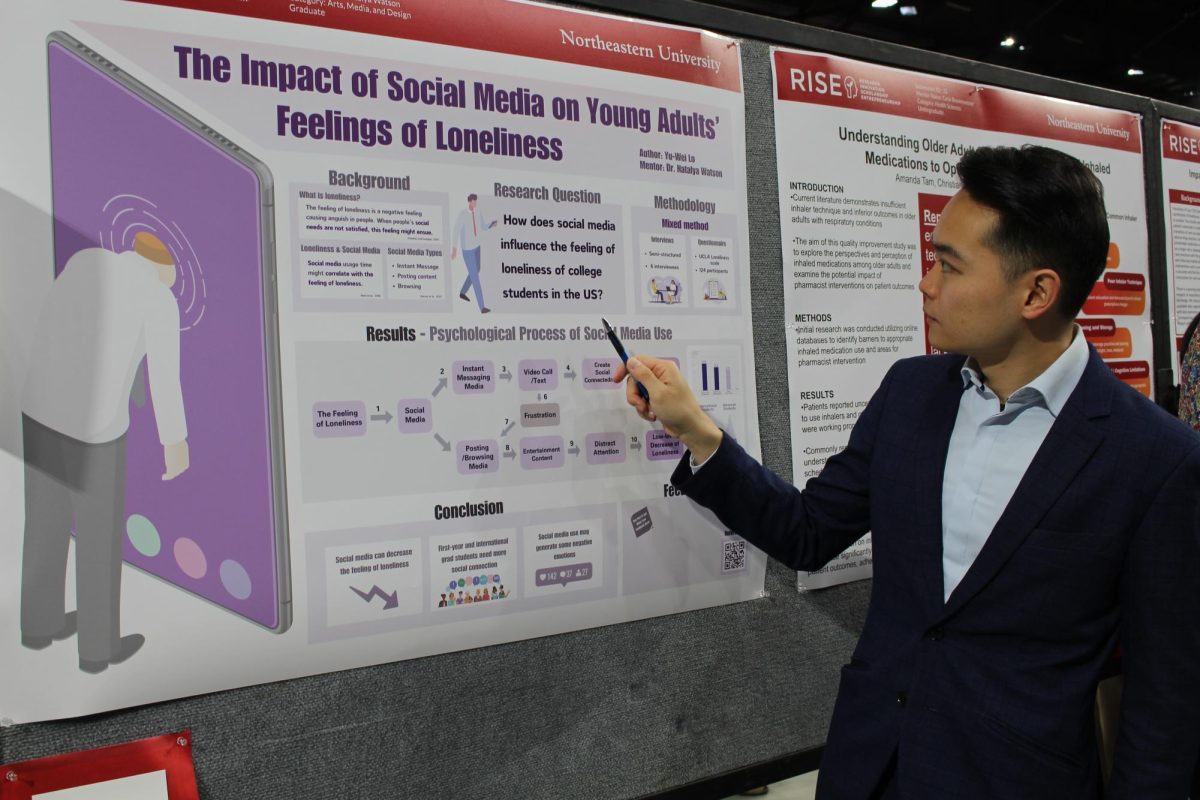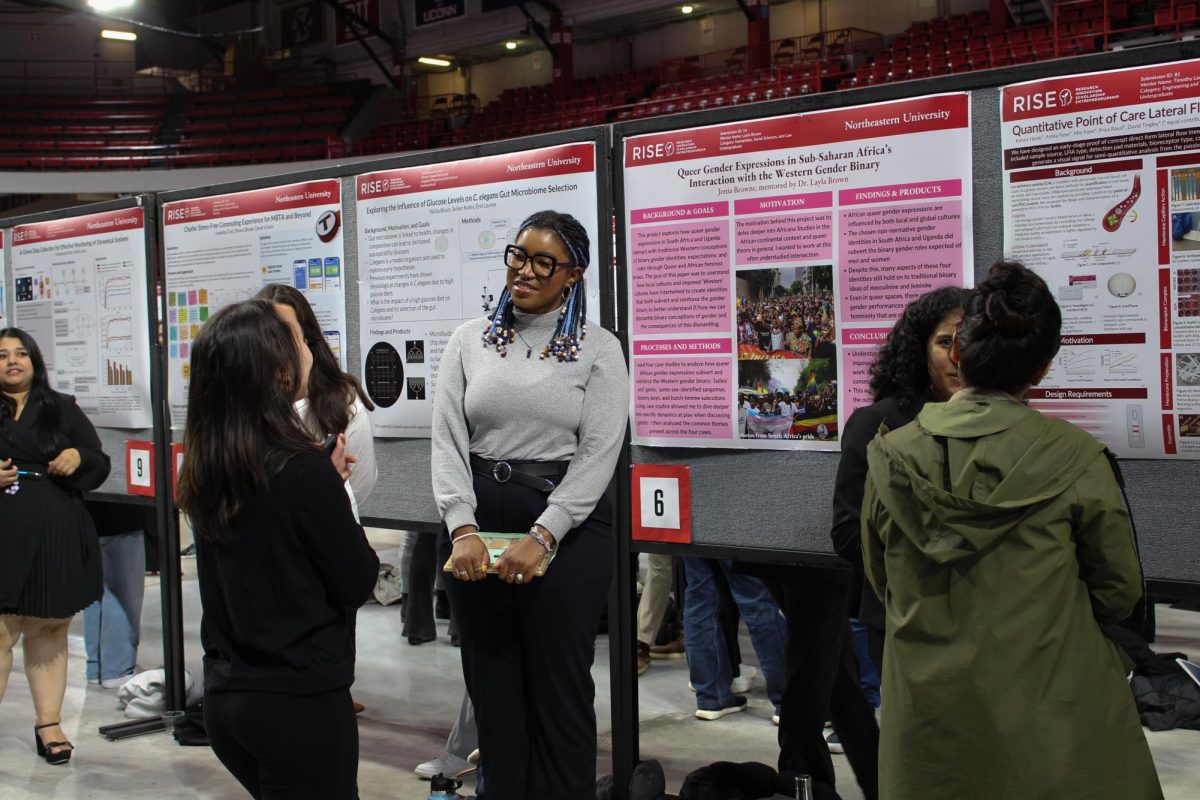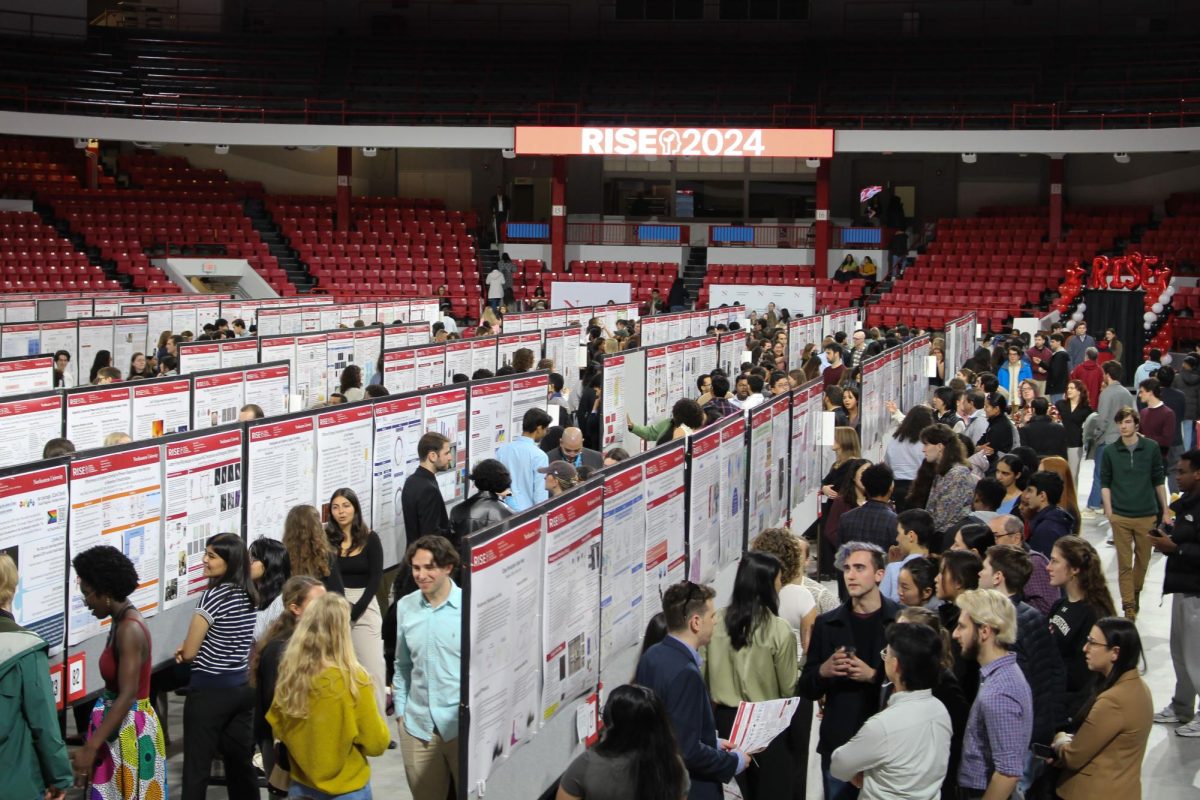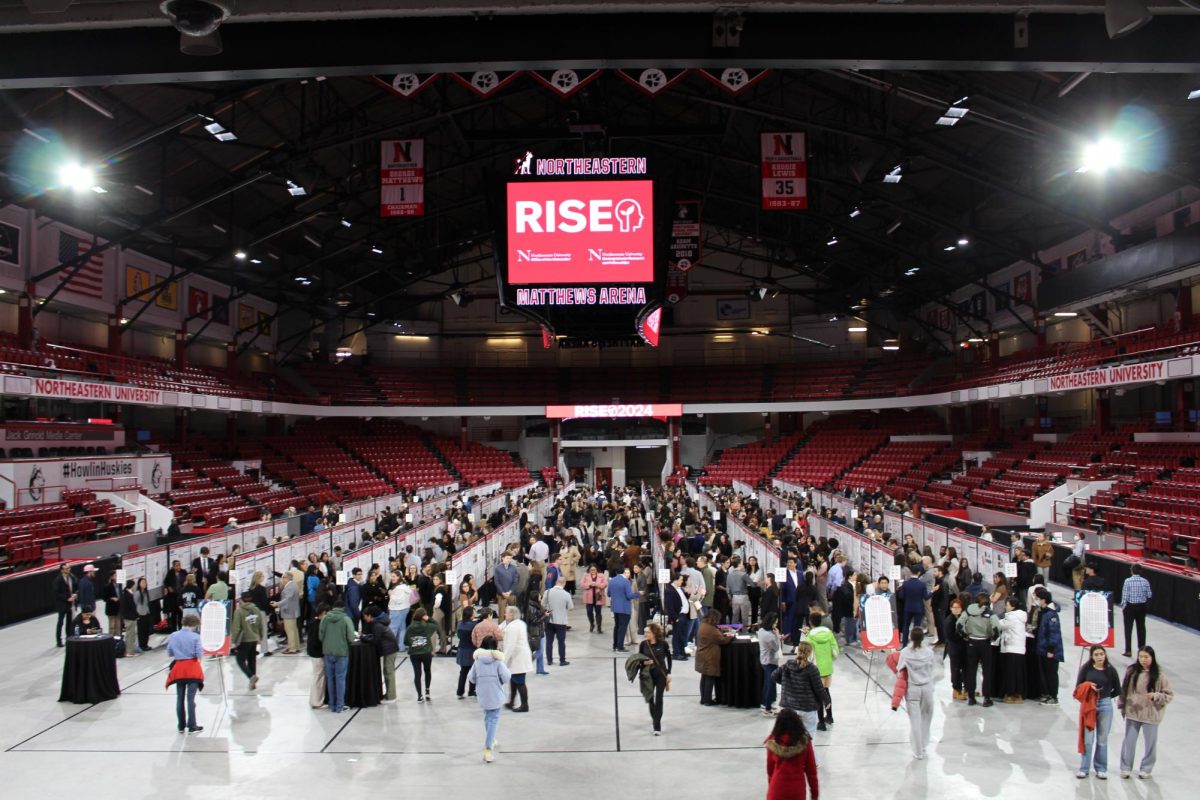Over 400 undergraduate and graduate students presented their research and creative projects in a crowded Matthews Arena during the annual RISE Expo April 11. The two-hour event highlighted a diverse set of presentations born out of class assignments, directed studies and students’ own passion projects, ranging from fundamental research to cultural literature reviews to engineering prototypes and apps.
To bring their projects to fruition, students worked with faculty mentors, often whom they met through academic courses. Many also found support through the Undergraduate Research and Fellowships office, including funding through programs like the AJC Merit Scholarship and PEAK Experiences Awards.
Students presenting at RISE said the exhibit was an opportunity to practice presenting at conferences and to share their work with the larger Northeastern community — especially interested professors.
Since its inception in 2012, RISE, or Research, Innovation, and Scholarship Expo, has taken place every spring. This year, it coincided with Northeastern’s Giving Day.
Yu-Wei Lo, a graduate student studying digital media, said his professor, Natalya Watson, recommended he participate in RISE to get experience presenting in English, which isn’t his native language.
“Here, I can have a conversation and explain ideas that are interesting in my research before attending a conference with thousands of people,” Lo said.
Lo studied how social media impacts feelings of loneliness in young adults. He interviewed six participants and had over 100 people fill out a questionnaire, many of whom were Northeastern students. He found that while instant messaging and calling can create social connectedness, social media often leads to only a small decrease in feelings of loneliness and causes users to feel guilty about the amount of time they’ve spent on the platforms.
“At the beginning, I thought my project would get rejected because it’s not a huge project,” Lo said. “But [I found that] mental health and spiritual health are important to students. It’s encouraged me to keep working on this topic in my life, to keep exploring.”

Jenia Browne, a fourth-year international affairs major, decided to present at RISE because “there’s not a lot of social sciences and humanities [at RISE],” they said.
“I think it’s really important for people from CSSH and from other fields to present their work and let it be known that our work is at Northeastern,” Browne said. They conducted a literature review looking into how queer gender expressions in sub-Saharan Africa differ and interact with Western notions of gender.
One duo of graduate students studying digital media, Kanksha Dixit and Shivani Bhosle, became frustrated with navigating the T, its delays and the CharlieCard system. After talking with other students, they decided to develop an app to handle tickets and funds and display train schedules. The pair found a professor who shared their frustrations and agreed to meet with them informally to provide support and feedback on their project. At RISE, they collected signatures from attendees to document support for their project.
Another duo — second-year data science majors Jeremiah Payeur and Diya Jhamtani — designed a program that allows astrophysicists to easily navigate a colossal database with thousands of observations of stars.
“We just had someone [stop by] who studies astronomy,” Jhamtani said at the exhibit. “One of my old professors came up. It’s been fun reconnecting with people.”
Payeur and Jhamtani started the project in a data science course taught by computer science professor John Rachlin.
“The passion that Rachlin has for astronomy and his other projects has really encouraged me to keep moving with it,” Payeur said. “Being at Northeastern, having professors that are willing to work with undergraduates like that — [professors] who are passionate about it and who want to work with them collaboratively — that makes so much of a difference.”

Jennifer Field, a fourth-year mathematics and physics combined major, also started her project in a classroom. For her final assignment in an electronics class, she started developing a cane for visually impaired people that has a sensor on the tip and sends a light haptic buzz in the handle to alert users when an object is in front of them.
Field’s physics professor, Haridas Kumarakuru, encouraged her to continue working on the project after the class ended. She found professor Canek Fuentes Hernandez — who was interested in creating autonomous systems that can detect objects — and, with him, completed a six-month co-op funded by the AJC Merit Scholarship and a 10-week directed study funded by the PEAK Summit Award.
While the vast majority of students had faculty mentors for their projects, it’s not a requirement for RISE. Mechanical engineering graduate student Isaiah Simpson presented his progress on an Ironman suit prototype that he had been working on independently. In middle school, Simpson started learning how to do 3D printing and electrical wiring, thanks to a string of supportive teachers. Since then, the hobby has only continued to grow.
“A lot of people would go on their phones, go outside or play video games to procrastinate. My form of procrastination is just 3D modeling things that I want to build later,” he said.
RISE organizers gave Simpson a list of professors who might be interested in the project, and while he hadn’t had the chance to connect with any, he viewed RISE as an opportunity to meet potential collaborators.
“I definitely want to see what kind of support I can garner with the design I have,” Simpson said. “I love collaborating with people — especially if the things they are bringing to the table are things I’ve never experienced before … because now I have a chance to learn about it, and I love learning, any opportunity to learn.”










